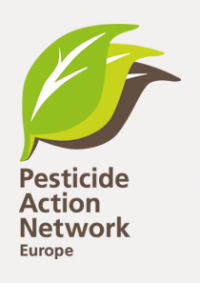Letters

Open Letter to Commissioner Kyriakides Derogations ruling, 1 month later
Dear Health Commissioner Stella Kyriakides,
We, the undersigned NGOs, have in the past years repeatedly drawn your attention and that of Member States, to so-called emergency authorisations of banned pesticides in some Member States which were not carried out in accordance with the provisions of Article 53 of the Pesticide Regulation (EU) 1107/2009. We have also appealed against these authorisations.

Joint open letter on the need for a strong proposal on an EU legislative framework for sustainable food systems.
Dear President von der Leyen,
Cc: Executive Vice-President Frans Timmermans, Commissioners Stella Kyriakides, Janusz Wojciechowski and Virginijus Sinkevičius
We, the undersigned organisations, are writing to urge you to ensure that a strong proposal for an EU legislative framework for sustainable food systems is presented by September 2023.

Letter to Finland to stop use of neonicotinoids-treated seeds
Dear Minister Kurvinen,
We are writing to you regarding the emergency authorizations for the use of Thiamethoxam, an active substance very toxic to bees and other pollinators, used in sugar beet seeds’ coating, which is now subjected to an immediate ban.

Letter to European Commission on EU Court pesticide derogations ruling
Dear Commissioner,
In a preliminary ruling (case C-162/21) recently published, the Court of Justice of the EU has clarified a certain number of boundaries, with regards to the use of article 53 of the pesticide regulation (EU) 1107/2009. The Court ruling imposes a series of changes both at Commission and at Member States levels.

Décision de la CJUE interdisant les dérogations de pesticides à base de substances actives interdites au niveau UE
Monsieur le Ministre Clarinval,
Le 19 janvier[1] dernier, la Cour de Justice de l’Union européenne (CJUE) a rendu un arrêt confirmant l’illégalité des dérogations octroyées par la Belgique de 2019 à 2021 à trois insecticides néonicotinoïdes[2] expressément interdits en plein champs dans l’Union européenne en raison des risques graves encourus par les abeilles.

Letter by EU Commissioner Stella Kyriakides re. NGOs letter on glyphosate
Dear Mr Dermine,
Thank you for the letter of 14 December 2022, submitted on behalf of 28 environmental and health related non-governmental organisations, in which you call for an immediate ban of glyphosate in the EU due to concerns about its impact on health and on the environment and stress that the concern of citizens must be listened to.

Take the side of European people and ban glyphosate
Dear Commissioner Kyriakides,
We, the undersigned 28 environmental and health groups, urge you to immediately ban glyphosate from the European market on the basis of the overwhelming amount of scientific evidence showing that glyphosate, and glyphosate-based products, likely cause serious diseases to humans and are toxic for the environment and its species.

New research shows a safe toxin dose for the unborn does not exist
Dear Ms Kyriakides,
New research by Gregor Kasprian et al.1 reveals that consumption of alcohol even in low to moderate amounts during pregnancy can change the baby’s brain structure and delay brain development. Fetal MRI scans were made of 24 fetuses with a known alcohol exposure. Seventeen out of the 24 mothers drank less than one alcoholic drink per week and still harm could be observed in the fetuses.

Joint Statement: NGOs AND Trade Unions demand the end of EU’s export of banned pesticides and other hazardous chemicals
Exports of banned hazardous chemicals: time to put an end to double standards
1. Hazardous chemicals, banned at a domestic level in order to protect human health and the environment, are currently produced and exported by EU countriesto third countries where regulations are generally weaker.